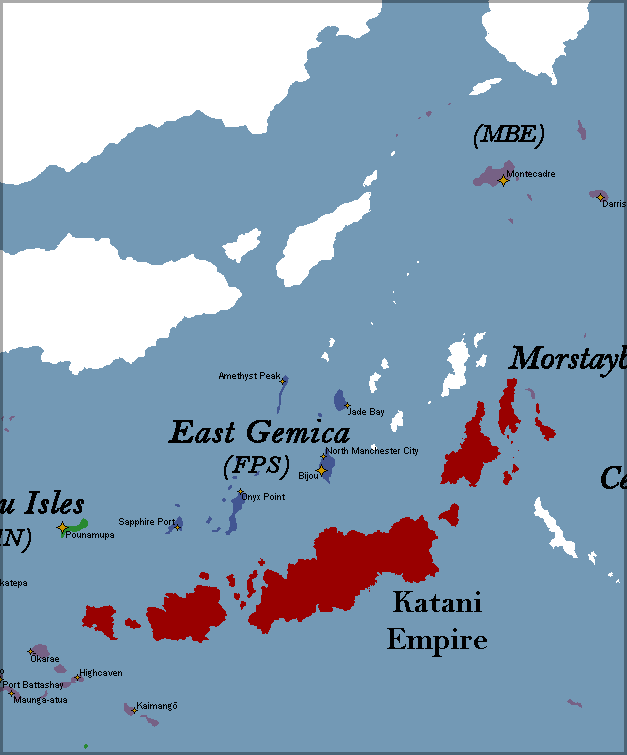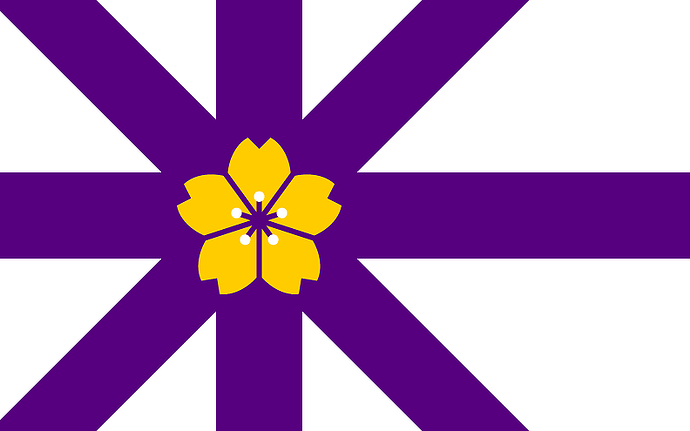Nation Name (long): The Yukkirian Empire
Nation Name (short): Yukkira
Motto: “For the Nation, Our Lives Are Forfeit.”
National Animal: Red Dragon (It’s supposed to be mythical)
National Flower/Plant: Cherry Blossom
National Anthem: N/A
Capitol: Seta, in the Province of Mei
Largest City: Xia, in the Province of Xia
Demonym: Katani
Language: Katani (Japanese-National), Codexian (Major), Local Dialects (Minor-Province)
Species: Humans (100%)
Nation Size: (18,273 pxls x 6.34126 km^2) = ~115,874 km^2 ORIGINAL CLAIM SIZE
Population: ~43,522,274 people or 375.6 people per square km. The last census was taken in 2020.
Government type: Constitutional Monarchy
Leader(s): Empress Kirin Yuki. Prime Minister Shin Shi
Legislature: Imperial Court (House of Nobles), Imperial Parliament (House of Commons)
Formation: Late 1800s
Total GDP: 999.92 Billion SHD
GDP per capita: 22,975 SHD
Calling Code: +666
ISO 3166 code: YK - YUK
Internet TLD: .yuk
Historical Summary: The Katani are a group of short, somewhat pale, narrow-eyed, people who settled in the lands of Katan in the time before time. Fast forwarding multiple centuries, a feudal system had been developed, and the people had settled the lands that would eventually become the Yukkirian Empire.
The main event that would form the foundation of the empire is called (unoriginally), the Ten Warlord’s Period, which started during the early 1500s and ended in the late 1700s. One of many, the Katani warlords would eventually conquer the main island, crowning themselves as kings and queens. Eventually, as the last islands were claimed, an empire would be proclaimed. This monarch was the original founder of the Dynasty of Yuki, the current ruling family of the empire today. During the 1700s, as peace claimed the land, the warrior-class would become restless, and rulers complacent and bored.
This complacency would lead to what is called the Setan Riots, named so after the city where the largest riots occurred. The commoners demanded representation in governance, among other things, while the warrior and noble-classes asked for forgiveness and mercy.
The agreement struck between the commoners and the nobility is called the Treaty of Xia, named after the city in which the accord was made. In it, while the nobility maintained their status in the social hierarchy, domestic affairs would be decided in a new body of government called the Imperial Parliament. Elections would be held every six years, with ministers voting from among themselves, a prime minister, which must be then appointed and approved of by the reigning monarch.
This catalyst established the current status quo, which we find the state in today.

